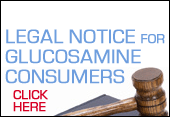 |
 |

Brought to you by the makers of Synflex ®
Over 1 million bottles sold!
America's most trusted brand
|
| History of Vioxx and Celebrex |
| Last review: 08/12/10 Vioxx Lawsuit Help |
Vioxx and Celebrex were both widely successful drugs for the pain relief of arthritis symptoms. Both emerging to the U.S. market in 1999, Merck and Pfizer both took part of a major direct-to-consumer marketing campaign of their drugs Vioxx and Celebrex. Soon blockbuster drugs, Merck and Pfizer’s COX-2 inhibitor drugs were greatly popular.
Over the years, concerns of Vioxx side effects were muted by the continuation of high sales and major marketing that powerfully overshadowed any safety fears. Then in October 2004, Vioxx was abruptly pulled from the market after study showed the drug caused a significant increase in heart attack and stroke risk, creating major controversy. Pfizer’s Celebrex and Bextra were the only two COX-2 drugs that remained on the market. Pfizer quickly launched a new campaign for Celebrex, placing full-page ads in newspapers claiming Celebrex’s safety in the wake of the largest prescription drug recall of all time.
The Vioxx recall and the safety data that surfaced after created many concerns and questions about the safety of the entire class of COX-2 drugs. As Pfizer continued to reassure the public that its drug Celebrex stood independent of Vioxx and its cardiovascular risks, Merck and the FDA were under heavy attack for allegations that worrisome safety data was suppressed and adequate measures were not taken to properly address concerns that may be putting the public at risk for potentially deadly effects.
Just a couple months after the Vioxx recall, the FDA advised doctors to consider alternatives to Celebrex as well after a study was halted when it showed the drug increased the risk of heart attack and strokes at high doses. In the worst period in recent time, the FDA spent 2004 trying to defend itself after more and more evidence emerged that it allows companies to keep dangerous drugs on the market by letting them suppress negative data and relying on the company’s word alone to fix manufacturing flaws, as well as silencing safety alerts made by its own internal scientists.
Merck was immediately the target of hundreds of Vioxx lawsuits, and by the end of 2004, Merck had already lost $28.1 billion in market capitalization and said it was cutting 5,100 jobs. The company’s potential liability was estimated to be in the billions after the rush of personal injury lawsuits filed on behalf of Vioxx patients and survivors of Vioxx patients alleging the drug’s dangerous effects was partially or in full to blame for the deaths.
Pfizer paid out over $430 million to settle prosecutors’ charges of marketing violations, which the FDA is supposed to monitor. After Celebrex was linked to cardiovascular events, Pfizer lost about $21.9 billion in market capitalization by the end of 2004.
With 2004 being such a tumultuous year for the FDA and drug companies, everything is now under new scrutiny. The problems with Vioxx and Celebrex are expected to cause a shift in the way drug companies advertise their drugs and look at drug benefits and risks. Budgets for consumer advertising and physician marketing and the disclosure of study information are two major aspects of drug safety that is sure to be focused on.
Even though estimates in the hundreds of thousands have been made of people that have suffered cardiovascular events because of COX-2 drugs, critics hope it will finally force positive changes in drug regulation and better protecting the public from dangerous drugs. Until then, the FDA and drug companies will have to slowly rebuild public confidence, which took a nosedive in all the events and safety concerns that surfaced during 2004.
This article about Vioxx and Celebrex was contributed by Vioxx Lawsuit Help.
|
The author's statements have not been evaluated by the Food and Drug Administration and are not provided to diagnose any disease or to suggest that liquid glucosamine and chondroitin will treat, cure, or prevent any disease.

|
 |
|
 |






